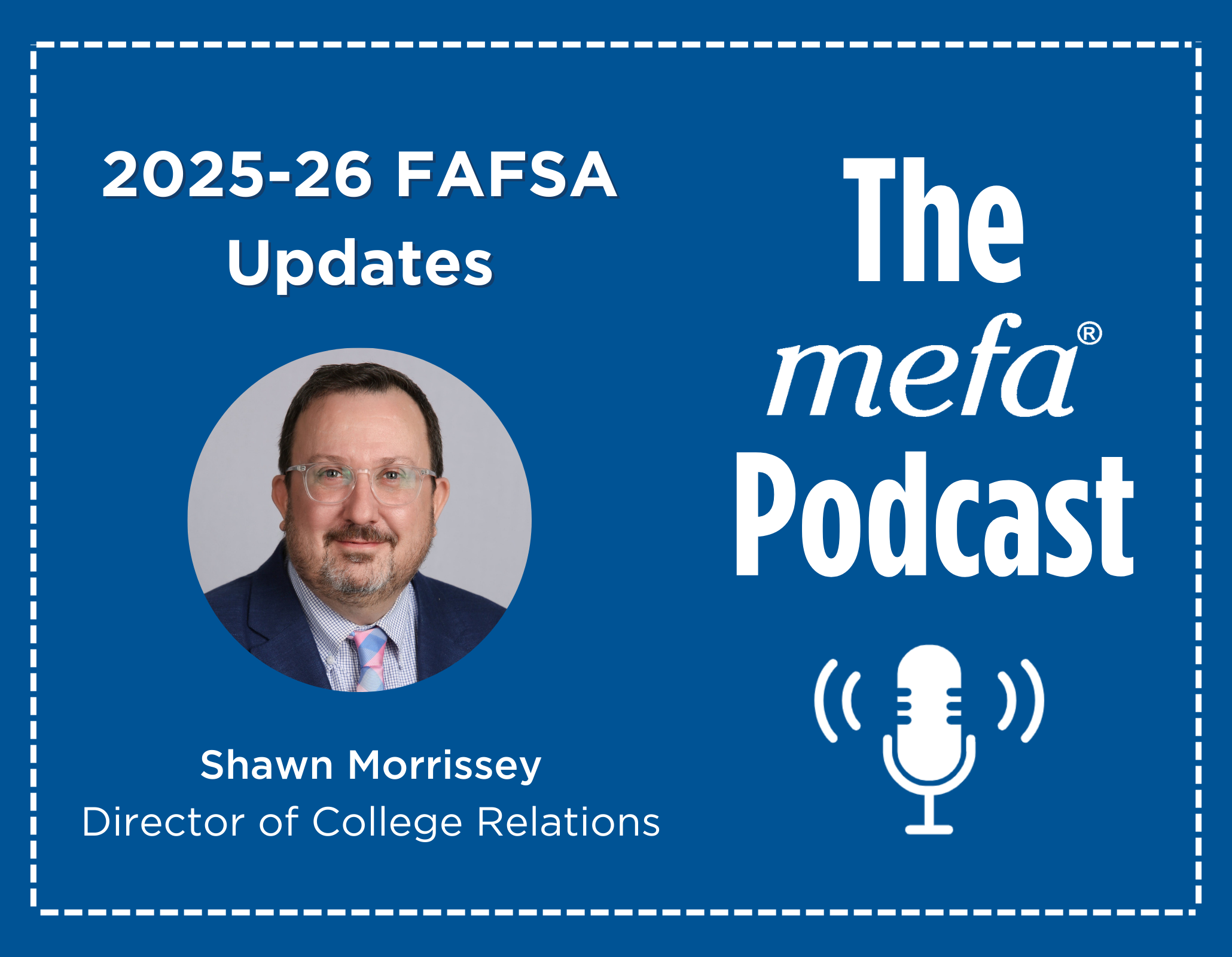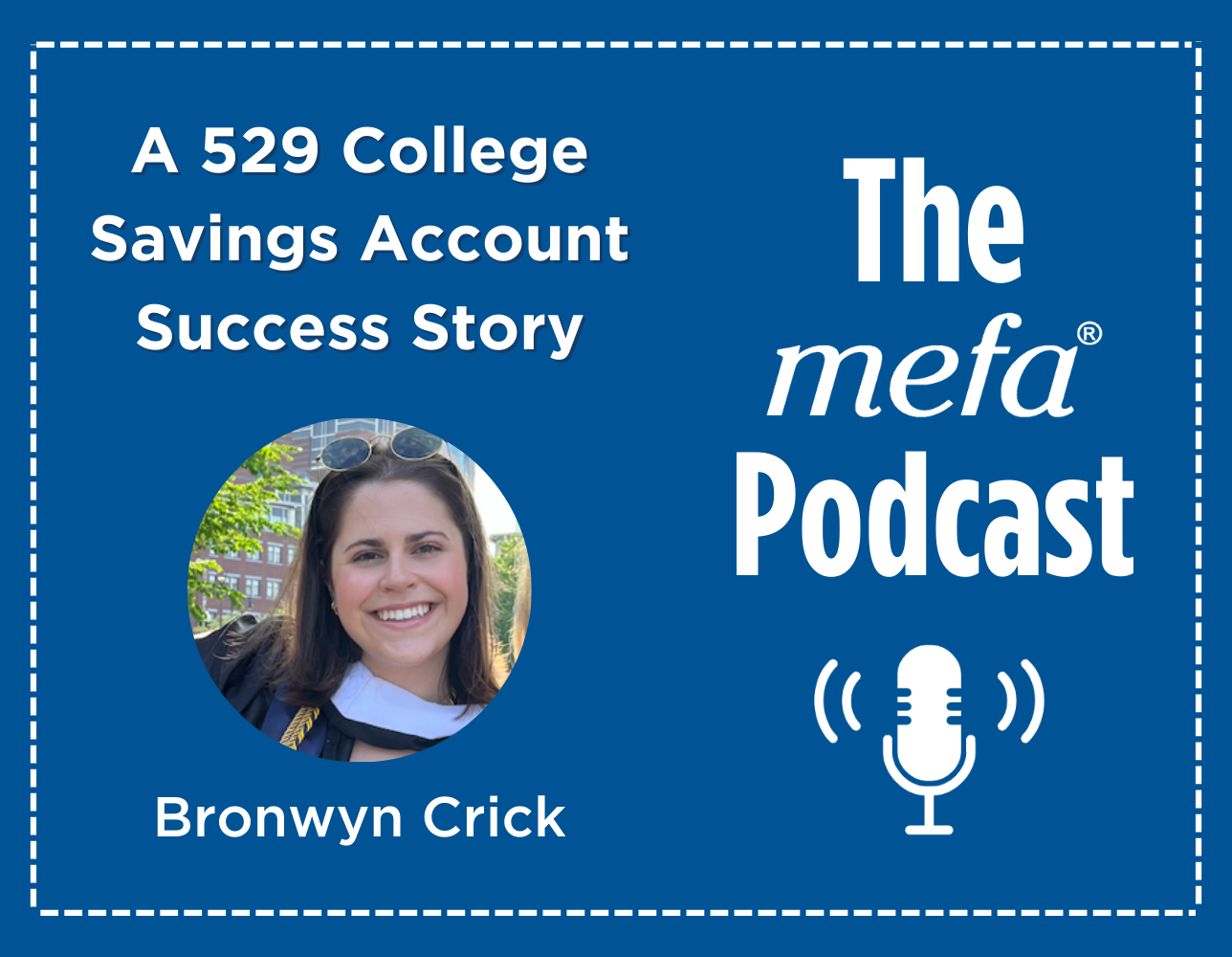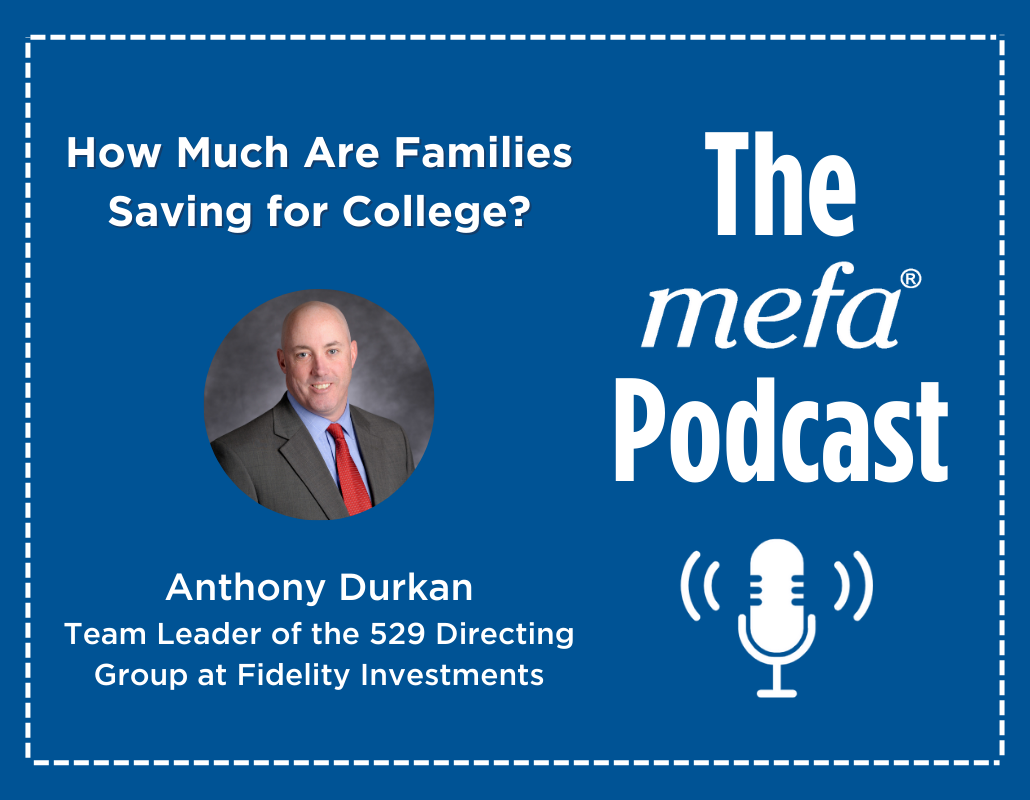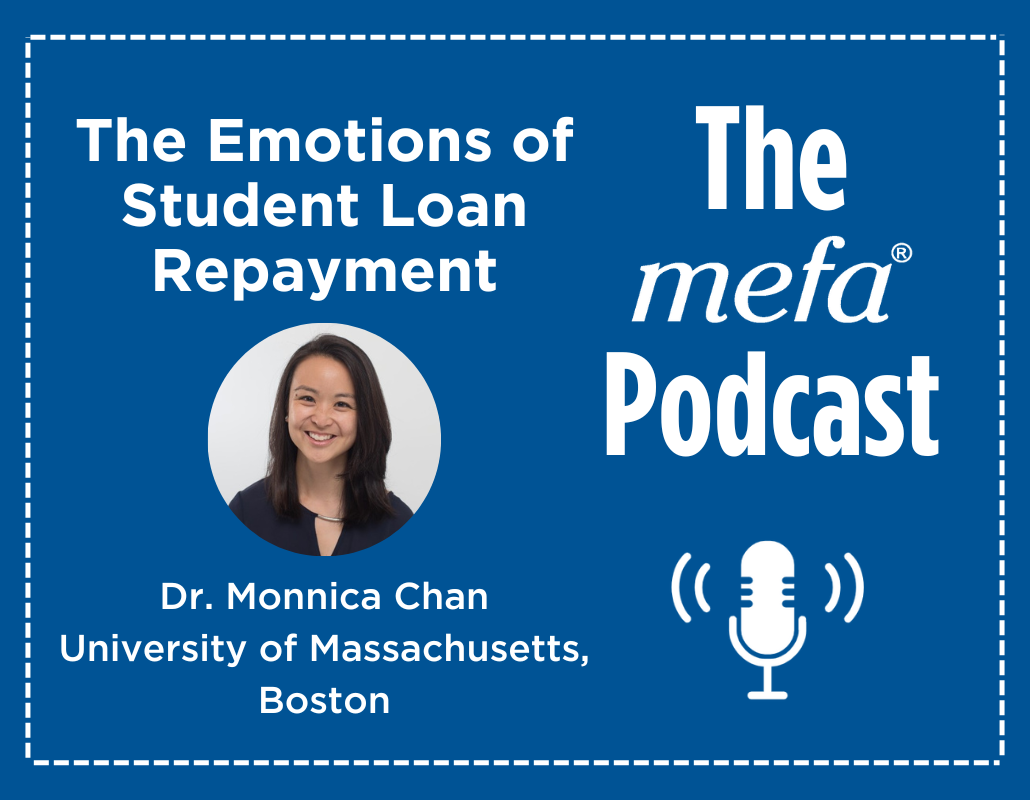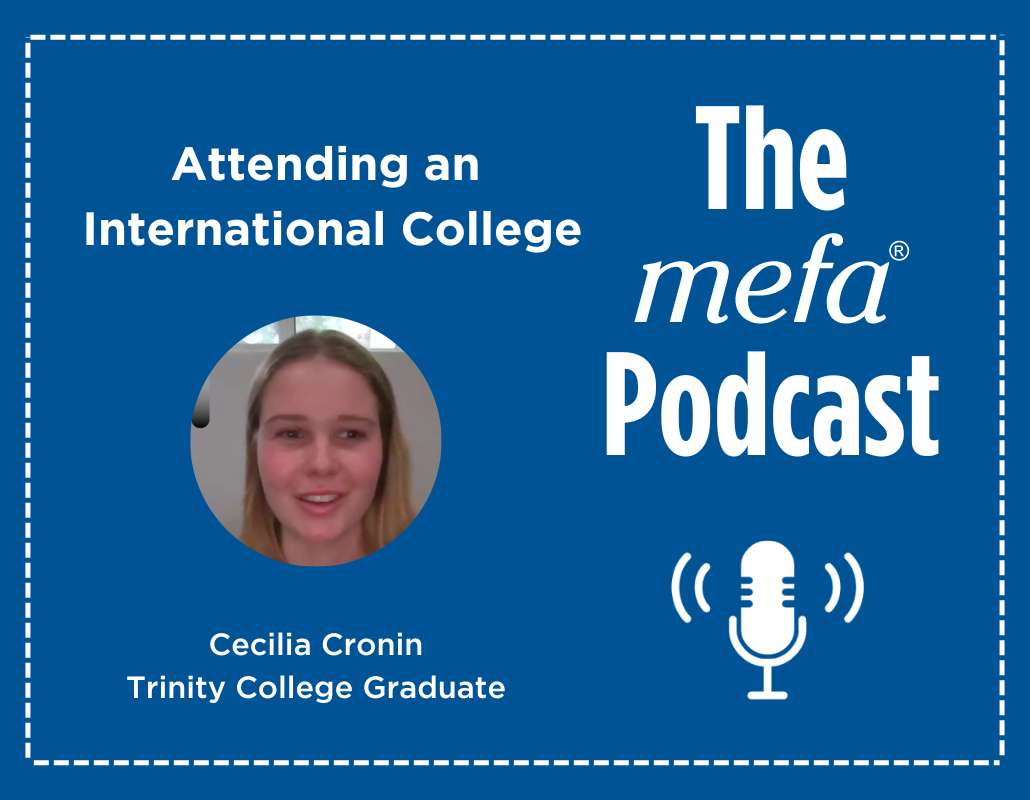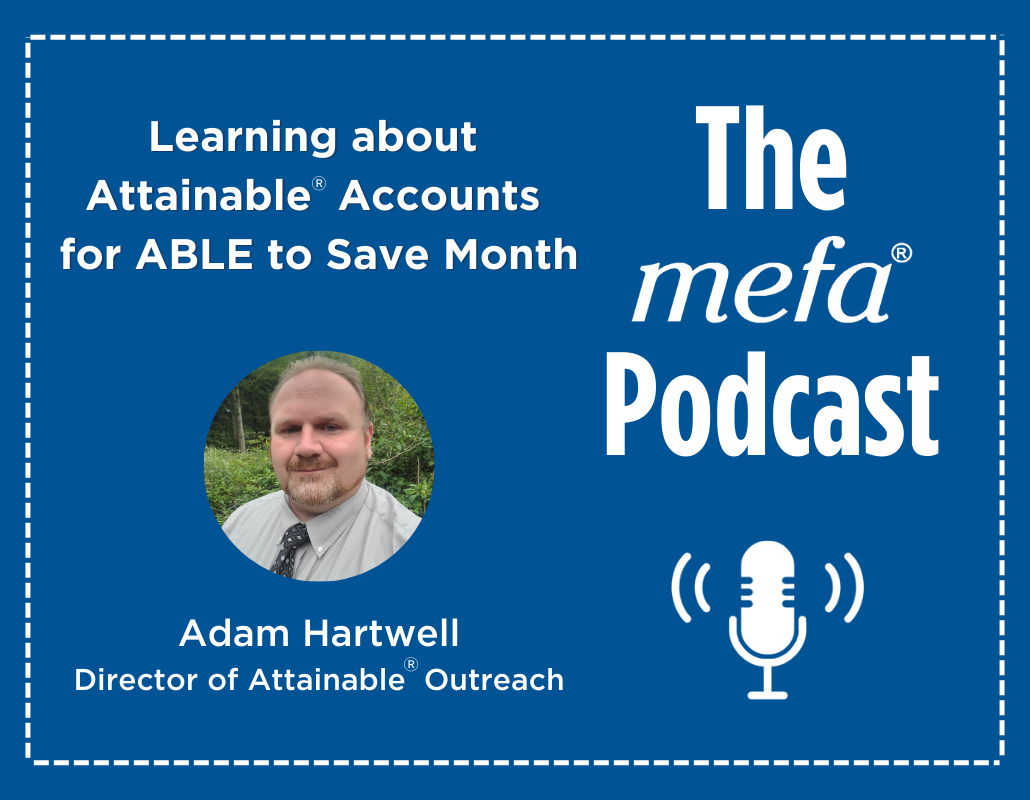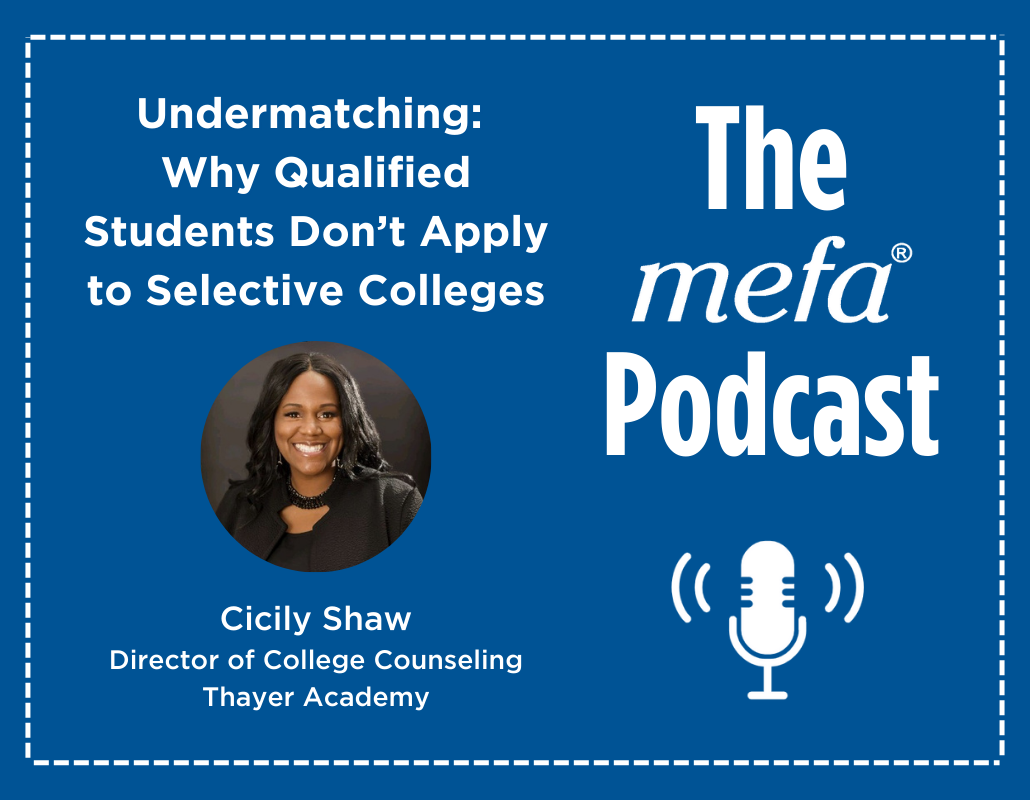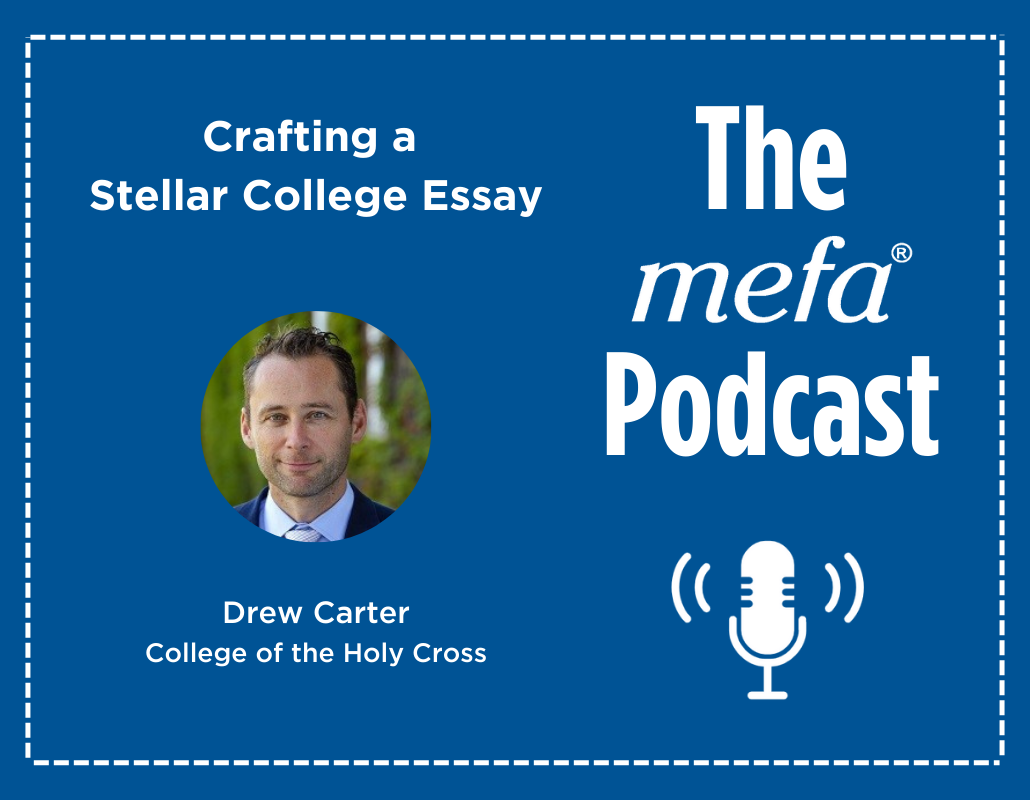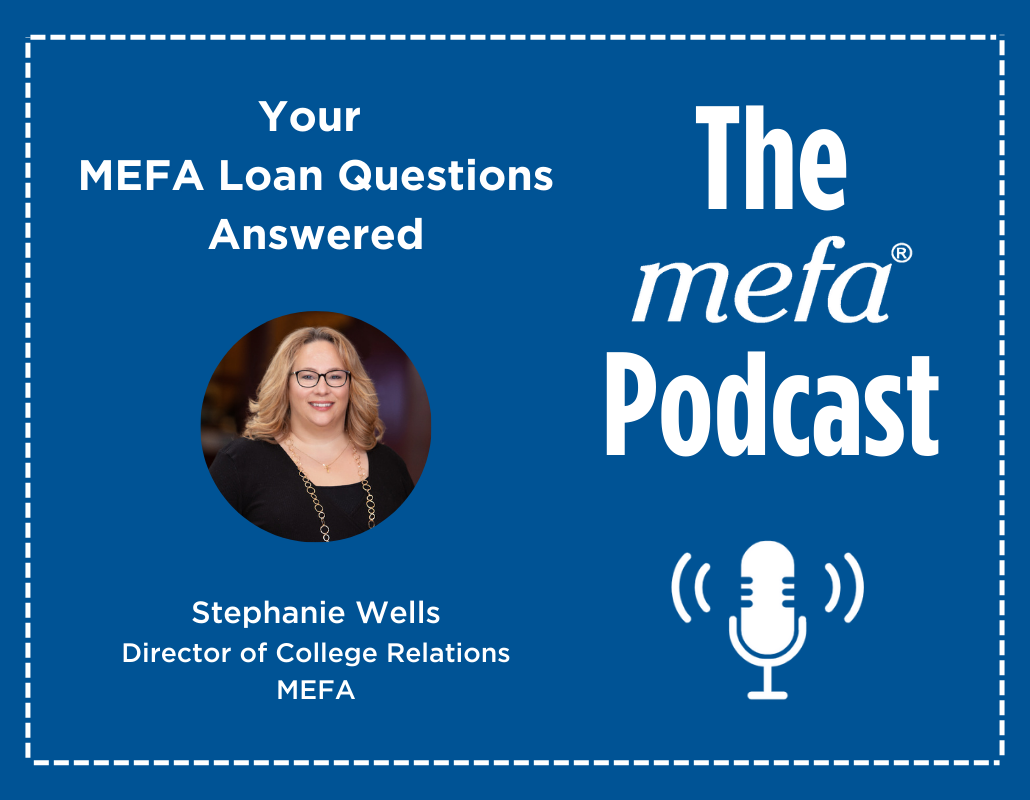
The MEFA Podcast
Welcome to MEFA's podcast series. Here you'll find conversations with experts about every step of planning, saving, and paying for college and reaching financial goals. You can listen to each podcast right on this page, or through your preferred podcast app. Send us a question and we might answer it on the next episode.
Listen and subscribe to the podcast
Podcasts Categories
Episode #99. Host Jonathan Hughes first talks with co-host Julie Shields-Rutyna about creating an FSA ID. They then answer a question from the MEFA Mailbag about reporting income on financial aid applications. Then they talk to MEFA’s Director of College Relations, Shawn Morrissey, about what to expect on the 2025-26 FAFSA, which opens on December 1st, any changes families may encounter, how to deal with delays, and more. If you enjoy the MEFA Podcast, please leave us a review.
Episode #98. Host Jonathan Hughes talks with Bronwyn Crick, a recent college grad, about how she was able to pay for both undergraduate and graduate school with her 529 college savings account. They discuss how her family started saving, how she chose what school to attend, and her advice for others. If you enjoy the MEFA Podcast, please leave us a review.
Episode #97. Host Jonathan Hughes first talks with co-host Julie Shields-Rutyna about the U.Fund Gift of College Cards, a new development that allows friends and family members to easily contribute to your college savings account by purchasing a gift card. They then go to the MEFA Mailbag to discuss the difference between an individual 529 account and a custodial account. Finally, Jonathan has a conversation with Team Leader of the 529 Directing Group at Fidelity Investments, Anthony Durkan, about MEFA’s partnership with Fidelity Investments and the results of the recent College Savings Indicator (CSI) study, including the ways that families are saving for college and parents’ behaviors, attitudes, and expectations around saving for college. If you enjoy the MEFA Podcast, please leave us a review.
Episode #96. Host Jonathan Hughes talks with Dr. Monnica Chan, Assistant Professor at the University of Massachusetts, Boston, about college affordability and student loan repayment. They discuss Dr. Chan’s educational background, what made her interested in college affordability, the results from a recent study of students on repayment, and what she sees as the biggest factors in student loan repayment. If you enjoy the MEFA Podcast, please leave us a review.
Episode #95. Host Jonathan Hughes talks with Cory Latham, the Director at Fidelity Investments responsibility for managing the MEFA U.Fund 529 College Investing Plan and the Attainable® Savings Plan for individuals with disabilities. Jonathan and Cory discuss Attainable® investments, the difference between Attainable® and other ABLE accounts, Cory’s work in the community, and more. If you enjoy the MEFA Podcast, please leave us a review.
Episode #94. Host Jonathan Hughes talks with Cecilia Cronin, a recent graduate of Trinity College in Dublin, Ireland. They discuss the pros and cons of studying in another country, the differences in learning, how she made the decision to attend, the financial aspect of her choice, and some advice for other students. If you enjoy the MEFA Podcast, please leave us a review.
Episode #93. Host Jonathan Hughes talks with MEFA’s Director of ABLE Outreach, Adam Hartwell, about ABLE accounts, tax-advantaged savings accounts for individuals with disabilities. But first, co-host Julie Shields-Rutyna answers a MEFA Mailbag question about MEFA’s loan origination process. Then Jonathan and Adam discuss the specifics of ABLE accounts, the eligibility criteria, who can fund an account, and more. If you enjoy the MEFA Podcast, please leave us a review.
Episode #92. Host Jonathan Hughes talks with Cicily Shaw, Director of College Counseling at Thayer Academy, about undermatching, a term that describes when qualified students don’t apply to competitive schools where they would likely be accepted. They discuss Cicily’s research on the subject, why low-income and first-generation students are more likely to experience undermatching, and what both students and school counselors can do to prevent it. If you enjoy the MEFA Podcast, please leave us a review.
Episode #91. Host Jonathan Hughes talks with Deputy Director of Admission at College of the Holy Cross Drew Carter about how to write a successful college essay. Drew explains what he looks for in an essay, when to start writing it, how to choose a topic, and more. If you enjoy the MEFA Podcast, please leave us a review.
Episode #90. Host Jonathan Hughes talks with Stephanie Wells, MEFA’s Director of College Relations, about MEFA Loans. They discuss how to apply, the different loan terms, how families can determine the best option, and the differences between a MEFA Loan and the Federal Direct Parent PLUS Loan. If you enjoy the MEFA Podcast, please leave us a review.
